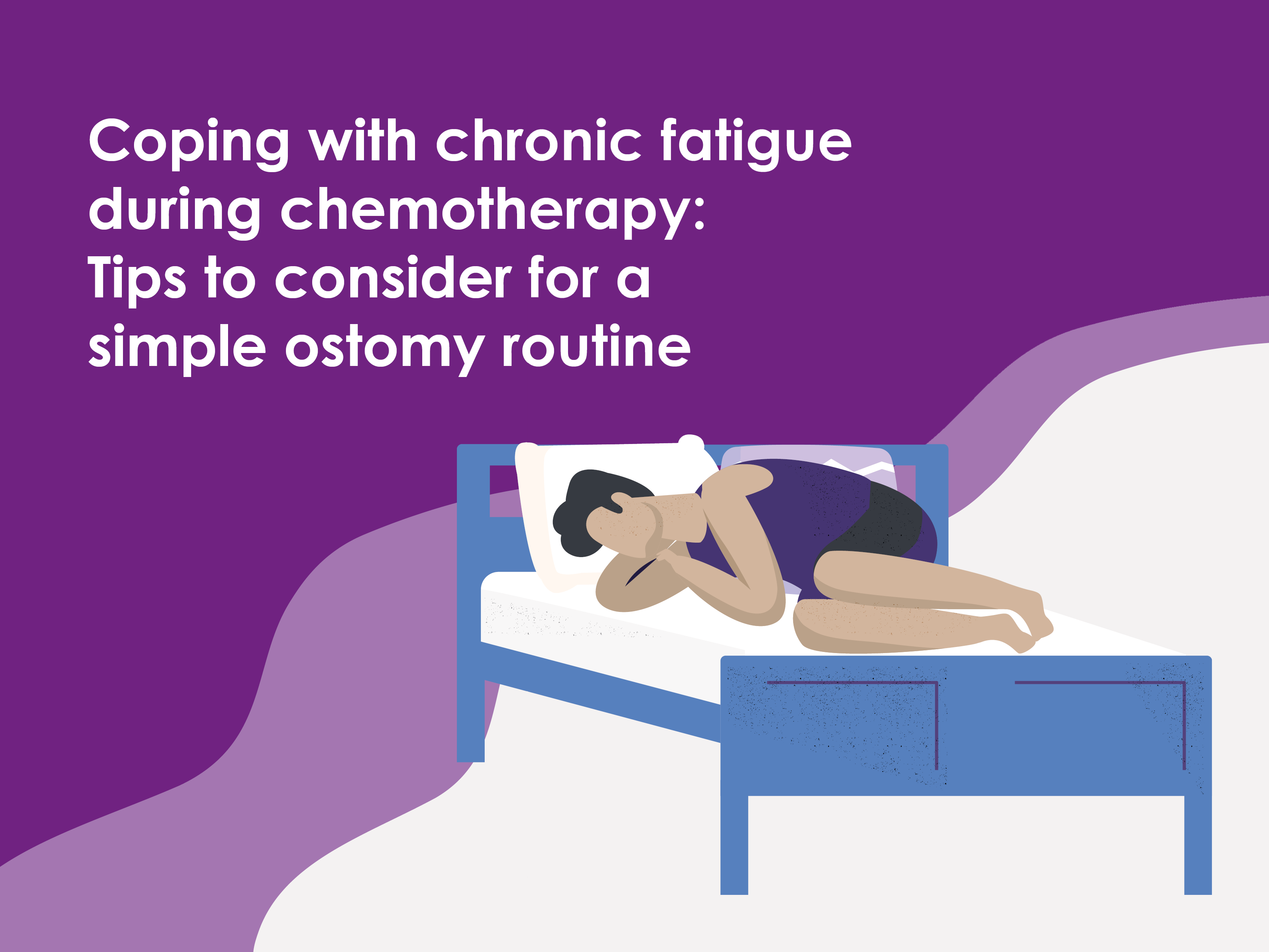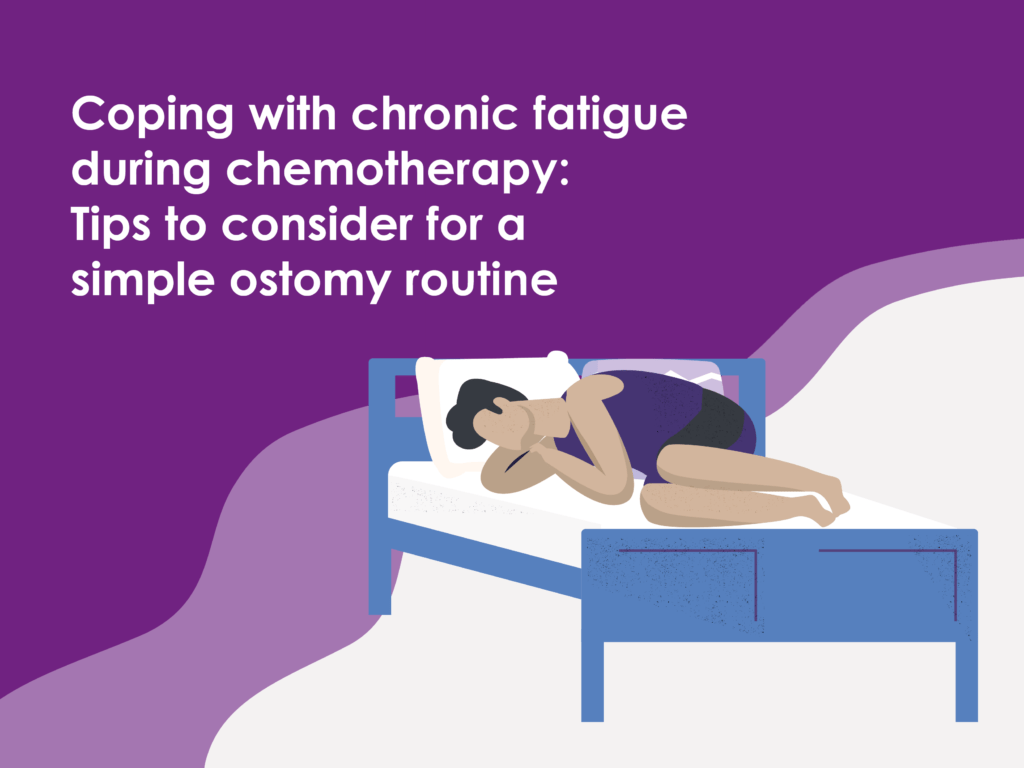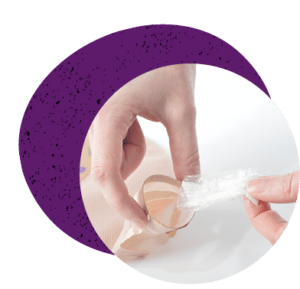 US
US


Coping with chronic fatigue during chemotherapy: Tips to consider for a simple ostomy routine


Unsurprisingly, chronic fatigue affects up to 80% of people who undergo chemotherapy.1,2 A combination of the medication’s impact on an ostomates body, change in appetite, newness of their stoma and recentness of their diagnosis can be overwhelming and fatigue is therefore understandable.
Cancer-related fatigue usually gets better after treatment finishes but it may continue for months or even years.1,3
As stoma care nurses there’s no quick fix to fatigue but we can be there to support our patients through these challenging times. Aiming to provide easy and adaptable stoma care routines from early in their journey is one way we can proactively help.
Exhaustion necessitates quicker, simple routines and following are some tips for adapting routines to help with chronic fatigue.
The pouch
In the early days post-surgery finding a pouching system that works for your patient is important but also is considering how it can adapt to many changing factors should be a consideration. With fatigue I would suggest:
- Consider using a 2-piece pouch which offer longer wear time baseplates therefore reducing pouch changes during times of extreme fatigue.
- Consider a larger volume drainable pouch which can cope more effectively with purges and also help reduce frequency of pouch changes.
- Switching to a pre-cut pouch, where appropriate, can also reduce the amount of time needed on stoma care prep.

The seal
Enhancing baseplate wear time with a seal is a good consideration. It should mitigate the risk of pouch leakages occurring and also help prolong baseplate weartime. Protecting against leaks may also means no additional tasks such as cleaning clothes or bedsheets if a leak occurs – much more difficult when you’re fatigued.
Consider the use of a more absorbent seal that helps to wick moisture away from at risk peristomal skin, prevent leaks and as such may extend pouch weartime.
Consider a mouldable seal to make it as easy as possible for a quick change.

Accessories
- Output thickeners are often used, particularly with high output ileostomies and may be beneficial for ostomates experiencing higher output due to chemotherapy.
- Then of course for a quicker change, using an adhesive remover can also be beneficial for both the pouch removal and to quickly clean adhesive from the skin.

Other
- Encouraging patients to prepare equipment in advance can assist when experiencing periods of exhaustion.
- Conditions such as anxiety, depression and stress can make fatigue worse. Encouraging patients to discuss how they feel with someone close, or their healthcare team may help.
Above all it’s about finding a simple, comfortable routine that works for each individual that is vitally important.

References
- Hofman M et al. (2007) Cancer-Related Fatigue: The Scale of the Problem. The Oncologist 2007;12(suppl 1):4–10 www.TheOncologist.com
- Wang XS, Janjan NA, Guo H, et al. Fatigue during preoperative chemoradiation for resectable rectal cancer. Cancer. 2001;92(6 Suppl):1725-1732. doi:10.1002/1097-0142(20010915)92:6+<1725::aid-cncr1504>3.0.co;2-d
- Bower JE, Ganz PA, Desmond KA, et al. Fatigue in long-term breast carcinoma survivors: a longitudinal investigation. Cancer. 2006;106(4):751-758. doi:10.1002/cncr.21671
